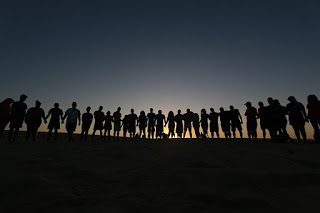Last Updated on July 28, 2022 by Michelle Ball
By Michelle Ball, Sacramento California Expulsion, Special Education, sports/CIF, College, Education and School Attorney/Lawyer for Students since 1995
Students frequently post rude things online, make snarky comments to friends, and feel protected posting in “private” online forums, such as Snapchat, Facebook, Twitter, Instagram or otherwise. However, these student posts, depending on their content, can come back to haunt kids who can be called in and suspended or placed up for expulsion. Even great students can post something wrong sometime–and “get away with it,” but how long can their luck last? For some students- the answer is not long enough.
Schools Can Reach Into the Internet and Social Media
I have seen more and more students up for expulsion or suspension for posts or comments in electronic media. This is really disturbing as some of the things I see students being punished for really do not support school discipline. For example, a comment about ice cream which the school misinterprets into a proposal for a drug sale on campus, or a student’s statement which does not cause a substantial disruption on campus and is not threatening anyone on campus. These things may not be punishable by schools, but law does not always stop schools from acting too hastily against students when the school thinks they are right.
Students May Be Lumped Together for Online Groups
Schools also seem to now be lumping students in online groups together for punishment, rather than looking at individual student culpability or participation. School staff may wrongly choose to punish all student members of a private online group where posts were made, regardless of whether the student actually committed a suspendable or expellable act themselves. This is disturbing to say the least, for students and families across California.
So, I thought a review would be helpful so parents can review this with their kids prior to it being “too late.”
Student Bullying Online, Off Campus May Be Punishable
The California Education Code extends jurisdiction for student acts far beyond the school doors and the school day. This really began in full force when the bullying discipline rules were developed, as outlined in section 48900(r). These rules allow punishment for bullying activities, including “electronic acts.” This punishment may be okay if the traditional rules of jurisdiction apply, limiting schools in the scope of their punishment to student acts going from/to school, at school or school events, etc. which has previously been a more common limiting factor.
However, the legislature now allows electronic acts to support school punishment for bullying, intimidation, harassment, etc. and defines “electronic act” (Ed 48900(r)(2)(a)) as:
““Electronic act” means the creation or transmission originated on or off the schoolsite, by means of an electronic device, including, but not limited to, a telephone, wireless telephone, or other wireless communication device, computer, or pager, of a communication…” [underline added]
This section opened the floodgates to school jurisdiction, as they can reach internet or phone posts at home, on weekends, or any other time posted (depending on what a post includes). This section, coupled with schools labeling all negative comments on line as “bullying,” “intimidation” or “harassment,” when they are negative about a group, person, or school staff member, even if private or only shared with a small group of students, has resulted in a lot of student punishments.
Parents, who have never before encountered the school discipline machine are being called and told that what a student did online was bullying and they are out on suspension or even up for school expulsion. With the limited, shoddy investigations performed at schools, “justice” can come swiftly for a student.
Examples of Students Online “Wrongs” Schools May Punish For
Some examples of what schools are punishing students for nowadays (some valid, some invalid) include:
1) Posts involving threats to students or staff.
2) Posts discussing acts that are hypothetical (e.g. harming a student with no real intent).
3) Jokes or funny pictures that someone thinks is bullying.
4) Posts with weapons and/or threatening a student or school staff member.
5) Comments about racial groups, disabled students, or just students in general whether actually bullying them or not
6) Comments about the opposite sex and sexual matters of students, which is categorized as online sexual harassment and intimidation.
7) Anything the school sees as “negative” and can squeeze into the bullying, harassment, intimidation, etc. category
8) So many other things that may not be proper for discipline—-
Using Online Information to Generate “Reasonable Suspicion” of Other Crimes by Students
Even if a student communications and posts are off campus and contain protected free speech, schools may still try to find a “crime.” Schools use any data gleaned to try to support an argument they have a “reasonable suspicion” of rule breaking activity and then use that “reasonable suspicion” to investigate a student for e.g. drug sales, or other suspected inappropriate activities.
Students who make an offhand comment on a private chat, or otherwise, can face a long and grueling suspension or expulsion process for comments or jokes. The executioner- the school- doesn’t really care about First Amendment rights, but rather care about getting any perceived threat out so they can cover themselves. And can parents afford to put up a First Amendment argument in the courts if the school does not agree to drop a suspension? Not many can.
These rules and their application to everything students say online that is perceived to threaten the school or someone who is involved with the schools, chills free speech.
No Posts Are Really Private
And, one large rule to remember here: NO ELECTRONIC POST, PICTURE, OR PRIVATE GROUP IS REALLY PRIVATE. If a student posts something privately and another student or parent reports it- it is no longer private. Even in Snapchat where supposedly pictures are gone forever- people take screenshots of negative posts and turn them in to the schools frequently.
Caution Students Not To Make Online Threats
Parents, I hate to be the bearer of bad news, and I don’t agree with the long arm of the schools now in place. However, for now, parents, please discuss this speech-chilling situation with students.
Advise them to be reserved in what they post about a school or students. Yes, they can post things and still have free speech rights, which was recently confirmed in a landmark Supreme Court case.
But, maybe before posting, they could ask themselves: “If my school principal saw this post/group would he think I was threatening the school? Would someone in my school feel threatened or that I am going to harm them? Am I targeting some student due to their race, gender or other protected group?” If so, maybe leave that comment out, at least until the student is out of the public schools.
Student suspension and expulsion defense lawyer Michelle Ball can help with school problems. Being located in Sacramento, she may assist with school problems all over California, including in Oakland, Woodland, Citrus Heights, Placerville, Foresthill, Sonoma, Sonora and other locations.
Additional Reading: Mahanoy Supreme Court Case (2021)




